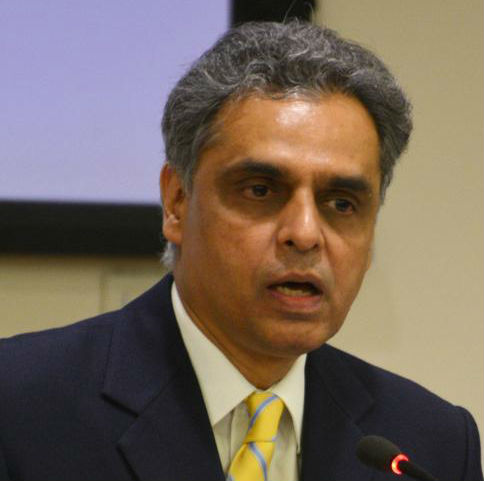By Arul Louis
United Nations– India has called for “greater vigour” in implementing UN and international sanctions and regulations against terrorist organisations acting in concert with organised crime.
The UN needs to increase cooperation with organisations like the Financial Action Task Force (FATF), which fight money laundering and terror financing, India’s Permanent Representative to UN Syed Akbaruddin said on Tuesday.
He said that “the twin scourges of terror and organised crime feed off the same lifelines” and while the nature of their relationship may vary, “they are sustained by the same malignant forces that seek to undermine governance, development and social cohesion through the illegitimate use of violence.”
Akbaruddin was speaking at the high-level meeting between the UN and the Shanghai Cooperation Organisation on preventing the linking of terrorism with organised crime and its financing through drug trafficking.
Earlier, UN Secretary-General Antonio Guterres said, “We face an increasingly complex global peace and security environment. Improving our understanding of the nexus between terrorism, transnational organised crime and drug trafficking is essential.
“The United Nations Office of Counter-Terrorism and other UN entities are developing cooperation frameworks with the SCO and its Regional Anti-Terrorism Structure.”
Akbaruddin said, “UN designated terrorist organisations such as ISIL, Al-Shabab, Al-Qaida, Boko Haram, Lashkar-e-Taiba and Jaish-e-Mohammed continue to destabilise entire regions through their cross-border financing, propaganda and recruitment, including by using — rather abusing — evolving global public goods such as the cyberspace and social media.”
They were raising funds in association with criminal organisations through human trafficking, drug trafficking, arms dealing, selling looted antiquities, money laundering and counterfeiting, he said.
An added challenge was the use of new and emerging technologies, including virtual currencies, encrypted communications and artificial intelligence that make “networks loosely associated on the ground, closely intertwined in cyber-space,” he said.
“The foundation of a coherent response to issues of narcotics trade, illegal financing and counterfeiting lies in frameworks like the Financial Action Task Force (FATF), that set standards with respect to combating money laundering and terrorist financing,” Akbaruddin said.
“The UN needs to increase cooperation and coordination with such bodies. Also, there needs to be much greater rigour and transparency in the implementation of instruments already at the disposal of the UN, such as the Security Council regimes targeting terrorist entities and individuals,” he added.
Akbaruddin said that meeting these challenges required increased sophistication and a coordinated international response, with real time intelligence sharing, capacity building and technology assistance but “there is still no common global strategy to curb criminal activities in cyberspace.”
The SCO’s Regional Anti-Terrorist Structure (RATS) is a useful mechanism for coordinated action against terrorism and drugs and India welcomed SCO’s increased cooperation with the UN Office on Drugs and Crime and the Central Asian Regional Information and Coordination Centre for Combating Illicit Narcotic-Trafficking, he added. (IANS)














